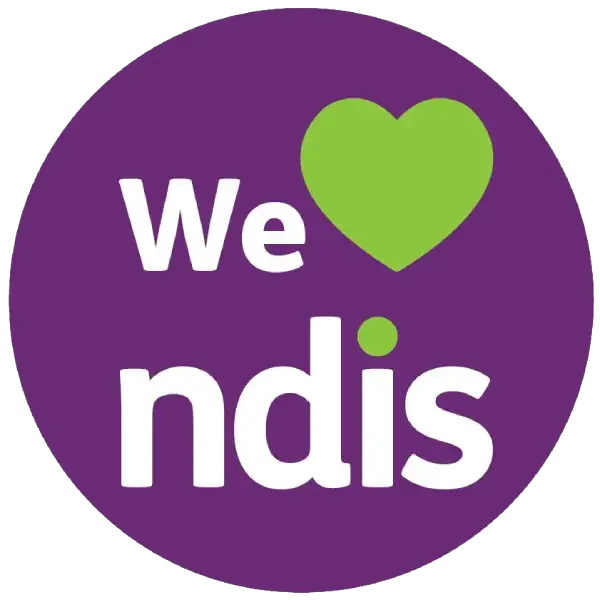Enquire about our SIL vacancies
What Is the NDIS?
The National Disability Insurance Scheme (NDIS) is a government-funded initiative that provides support to Australians under 65 who have a permanent and significant disability. The scheme aims to give participants greater choice and control over the support they receive, helping them live more independent and fulfilling lives.Importantly, NDIS funding is not means-tested, which means your income or employment status does not affect your eligibility. Whether employed, unemployed, or receiving Centrelink benefits, you can still qualify for NDIS support if you meet the access requirements. Once approved, you can connect with an NDIS Service Provider to help plan and deliver support tailored to your specific needs.
Am I Eligible for the NDIS?
To access the NDIS, you must meet specific eligibility criteria, including:- Age: Be under 65 years old when you apply.
- Residency: Be an Australian citizen, permanent resident, or hold a Protected Special Category Visa.
- Disability Requirements: Have a permanent disability that significantly affects your ability to take part in everyday activities. This includes physical, sensory, intellectual, cognitive, or psychosocial disabilities.
- Need for Support: You require support from a person or equipment due to disability.
How to Apply for the NDIS When You’re Unemployed?
Living with a disability while being unemployed can feel overwhelming. The good news is that the National Disability Insurance Scheme (NDIS) is designed to support Australians with disabilities, and your employment status does not affect your eligibility.
If you’re unemployed and wondering how to access the NDIS, this guide walks you through the process step by step.
Step 1: Check Your Eligibility
Start by confirming whether you meet the NDIS access requirements. You can use the NDIS’s online Eligibility Checker or contact the NDIS directly at 1300 668 655.Step 2: Gather Supporting Documentation
You’ll need evidence of your disability and how it impacts your daily life. This typically includes:- A diagnosis from a medical professional (e.g., GP, specialist).
- Reports detailing how your disability affects your ability to function independently.
- Proof of residency and age (e.g., birth certificate, passport, Medicare card).
Step 3: Contact the NDIS
Once you have your documentation ready, contact the NDIS to request access. You can do this by:- Call the NDIS on 1800 800 110.
- Visit your local NDIS office.
- Ask a trusted family member, carer, or advocate to assist you.
Step 4: Wait for the Outcome
The NDIS will assess your application and inform you of your approval. This usually takes up to 21 days, though it may take longer depending on your situation.Step 5: Plan Development Meeting
If approved, you’ll attend a planning meeting where you discuss your goals, needs, and the types of support you require. This is your opportunity to explain how unemployment or low income affects your ability to access services outside the NDIS.Types of Supports Available Through the NDIS
The NDIS funds a wide range of supports tailored to your individual needs. These include:- Daily Living Assistance: Help with personal care, meal preparation, and household tasks.
- Therapies: Speech therapy, occupational therapy, physiotherapy, and behavioural support.
- Transport: Funding for transport to enable participation in community activities or appointments.
- Home Modifications and Assistive Technology: Ramps, grab rails, wheelchairs, communication devices, etc.
- Support Coordination: Help manage your NDIS plan and connect with service providers.
- Employment Support: Vocational training, job coaching, and supported employment services.
Tips for Maximizing Your NDIS Plan on a Low Income
Being on a low income doesn’t mean you can’t make the most of your NDIS plan management. Here are some strategies to ensure you get the most value from your support:1. Work With a Planner or Support Coordinator
If you’re unsure how to allocate your NDIS budget, a planner or support coordinator can help you prioritize your spending based on your goals and needs.2. Access Free or Low-Cost Community Services
Many community organizations offer free or subsidized services (e.g., social groups, mental health support, exercise programs). These can complement your NDIS-funded supports without costing extra.3. Use MyGov to Manage Finances
Linking your NDIS account with MyGov lets you track your plan budget, manage payments, and stay informed about your funding.4. Ask About Capacity Building Supports
These supports help you build skills and independence, potentially reducing your long-term reliance on funded services. Examples include life skills training, education, and employment assistance.5. Explore Partnerships with Local Organizations
Some local councils, charities, and non-profits partner with the NDIS to provide additional support services. Ask your local community centre or NDIS office for recommendations.What If You Need Extra Help While Waiting for NDIS Approval?
There may be a waiting period between applying and receiving your first NDIS plan. During this time, you might feel uncertain about accessing necessary supports. Fortunately, there are options:- Community Nursing or Allied Health Services: Some local health services offer short-term support while you wait.
- Carer Gateway: Offers assistance to unpaid carers, including respite care and counselling.
- Disability Advocacy Services: Provide free advice and representation to help you navigate the system.
- Local Area Coordination (LAC) Program: LACs can connect you with informal and mainstream supports while you await approval.
Common Challenges Faced by People on Low Incomes
While the NDIS is designed to be accessible, people on low incomes or who are unemployed often face unique challenges:- Limited digital access: Without reliable internet or a computer, it can be hard to submit applications or communicate with the NDIS.
- Difficulty coordinating appointments: Travel costs or lack of transportation can make attending meetings difficult.
- Stigma or misunderstanding: Some individuals feel judged when seeking support due to financial constraints.
Conclusion
Being unemployed or on a low income should not prevent you from accessing the support you need through the NDIS. Remember:- Your income does not affect your eligibility.
- Help is available at every stage of the process.
- You have rights as a participant and can ask for reasonable adjustments.
Whether you’re seeking help with daily living, therapy, or pathways to employment, the NDIS is here to support you. At Ambition Health Group, we’re committed to guiding you through the process and ensuring you receive the services that best meet your needs. Don’t hesitate to reach out, ask questions, and advocate for yourself.
Recent Posts
Top Rated Services
Get A Quick Quote Now
Enquire about our SDA vacancies
Enquiry Now
Consult Our Care Experts
Grab Your Free Consultation Today!
Or give us a call to speak to someone now
1300 668 655









